Scene Opens:
Home Depot, Monday, 7 am.
A harried woman clutches items and calculates aloud…
Employee: Can I help you, Ma’am?
Woman (showing him an armful of wire): Is this the right width flexible steel wire for these pulleys?
Employee: Why, yes, Ma’am. Do you need any other parts? What are you making?
Woman: I’m building a three-part pulley system to make fifteen-pound dummy fly twenty feet high.
Employee (without batting an eye): Are you in the theatre?
Woman: Yes, how did you know? You didn’t even react to my strange project.
Employee: I did theatre tech in high school. That’s how I learned to build and use tools and eventually led to my working here. Theatre taught me a lot.
End Scene
March is Theatre in our Schools month and the occasion (as well as being fresh-off a successful run of Addams Family, the Musical with my students) had me reflecting on theater in my life growing up.
Theatre taught me perseverance -for weeks perfecting a Southern accent to do Fried Green Tomatoes. Theatre taught me responsibility -how to act as a member of a team and fulfill my obligations to the production. Theatre taught me how to engage an audience and tell a story- a vital skill when trying to engage 30 ten-year old’s or advocate to a roomful of legislators. Theatre taught me grace -what to do when my name wasn’t at the top of the list for the lead role…or on the list at all. Theatre taught me tech – sound and light board operations and designs, sewing, and set building. So much set building.
A Rationale for Arts Education
According to Americans Speak Out About the Arts in 2018, 91% of people surveyed said that the arts are part of a well-rounded K-12 education, with 61% strongly agreeing. 90% agree that theater, dance, media arts, music, visual arts are an important part of the curriculum in elementary school. Many studies found substantial evidence that learning in the arts has significant effects on learning in other domains. Engagement in the arts nurtures the development of cognitive, social and personal competencies.
Studies show that the arts reach students who are not otherwise being reached and in ways they are not otherwise being reached. Studies further find that arts-integrated instruction offers alternative avenues for students to access information and learn in English language arts and mathematics and may be more effective than traditional remedial programs. The arts are a valuable and often underutilized resource in helping to close the achievement gap.
Speaking of the achievement gap, arts education in our schools is an equity issue: 50% of people surveyed in Americans Speak Out About the Arts 2018 believe everyone in their community has access to the arts but data shows this is too hopeful. According to the US Department of Education, only 28% of high schools in high poverty areas offer theatre education.
But the arts benefit students of all zip codes, abilities, and readiness. Research also shows that the arts provide new challenges for those students already considered successful.
Advocating for More Arts Education
ESSA may be a key to increased arts education. A new requirement of ESSA that Local Education Agency plans must include a description of how the district will provide a well-rounded education. In ESSA, “The term ‘well-rounded education’ means courses, activities, and programming in subjects such as English, reading or language arts, writing, science, technology, engineering, mathematics, foreign languages, civics and government, economics, arts, history, geography, computer science, music, career and technical education, health, physical education, and any other subject, as determined by the State or local educational agency, with the purpose of providing all students access to an enriched curriculum and educational experience.” (ESSA, Title VIII, Section 8002)
Arizona, as well as New Jersey and Oregon, will present information on student access to a well-rounded education, including arts and music programs, on their school report cards. This could be an opportunity for us to spotlight the arts in our classrooms and school!
Benefits are not just for Students
The arts could even be a potential lever for increasing teacher engagement and retention. Research finds that arts education can have a valuable effect on teaching, renewing the excitement that teachers feel for their profession. It has even been shown to prevent teacher burnout, particularly for teachers in low-performing schools. Research also shows that teachers in K-12 schools who integrate the arts into their curriculum are more engaged in and satisfied with their teaching and exhibit lower rates of absenteeism. Speaking for my colleagues, we often have conversations about how our theatre arts and music programs keep us energized and feeling like we are an important component of the community.
This reflection has made me feel so lucky to take part in bringing theatre into the lives of my students. Let’s celebrate theatre in our schools and advocate for arts education! #TIOS2019 #Theatreinourschools

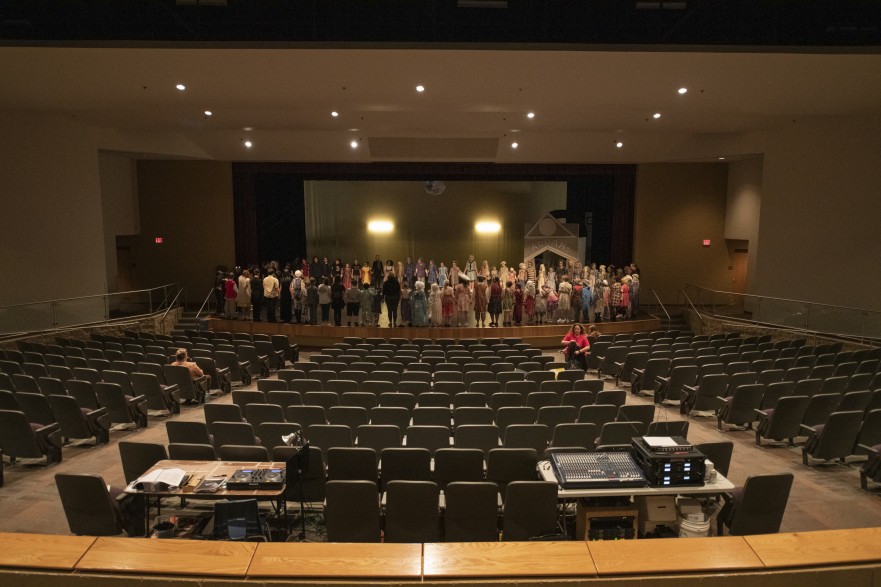




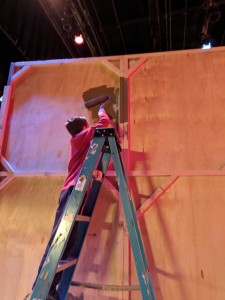
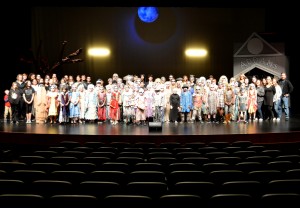
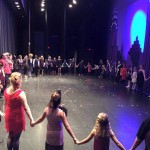

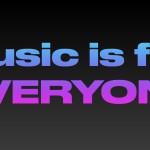

Comments 2
God Bless the Arts. Music, Theater, Visual Arts, Literature. Want to see students get smarter, more engaged, more motivated? Eliminate quarterly assessment, state-wide testing, and all preparation time, and have a week each quarter dedicated to appreciating the arts.
YES!